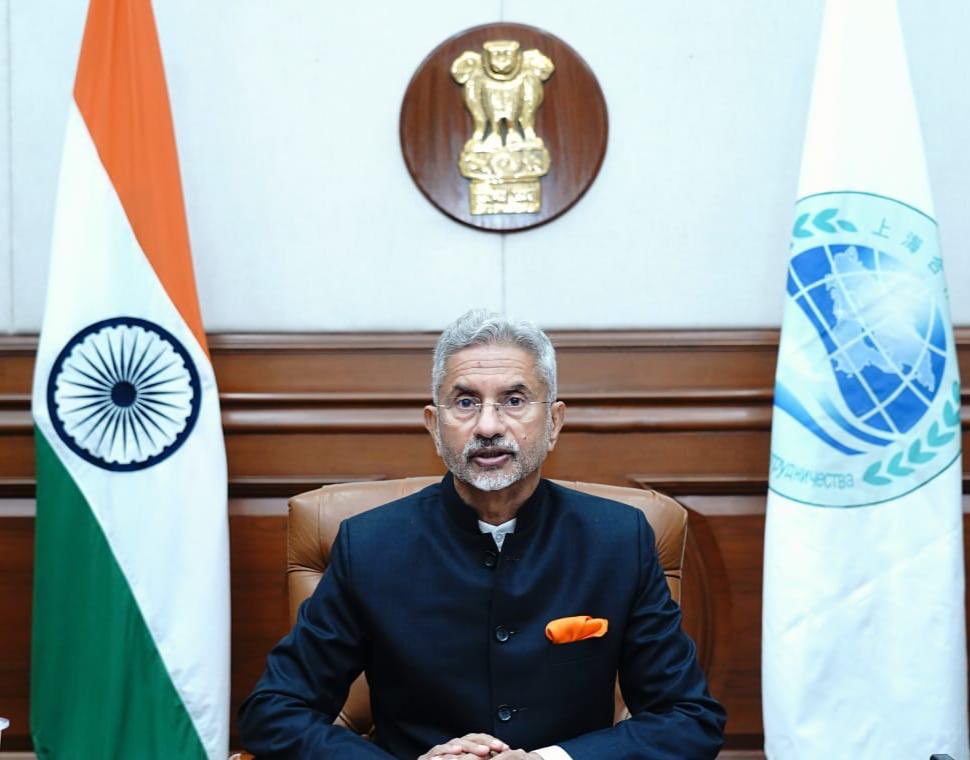The leaders of the Shanghai Cooperation Organisation (SCO) have agreed to take steps to increase the use of national currencies in trade between their countries, according to a joint declaration…reports Asian Lite News
External Affairs Minister S Jaishankar will represent India at a virtual meeting of the Council of Heads of Government (CHG) of the Shanghai Cooperation Organisation.
The CHG meeting, which is held annually, focuses on the trade and economic agenda of the bloc and approves its annual budget.
“The 21st meeting of the SCO Council of Heads of Government will be held on November 1 in the virtual format. External Affairs Minister S Jaishankar will represent India in the meeting,” the Ministry of External Affairs (MEA) said.
It said the meeting will be attended by SCO member states, observer states, the SCO secretary general and the executive director of the SCO Regional Anti-Terrorist Structure (RATS).
Turkmenistan and other invited guests are expected to join the deliberations.
“India remains actively engaged in various SCO activities/dialogue mechanisms in the region as well as other multilateral cooperation within the SCO framework,” the MEA said in a statement.
The leaders of the Shanghai Cooperation Organisation (SCO) have agreed to take steps to increase the use of national currencies in trade between their countries, according to a joint declaration.
The group – which comprises China, India, Russia and Pakistan alongside four Central Asian states – said “interested SCO member states” had agreed a “roadmap for the gradual increase in the share of national currencies in mutual settlements”, and called for an expansion of the practice.
The SCO was founded at a summit in Shanghai in 2001 by the presidents of Russia, China, the Kyrgyz Republic, Kazakhstan, Tajikistan and Uzbekistan.
Over the years, it has emerged as one of the largest trans-regional international organisations. India and Pakistan became its permanent members in 2017.
The annual SCO summit took place in the Uzbek city of Samarkand last month. Prime Minister Narendra Modi, Russian President Vladimir Putin, Chinese President Xi Jinping and other leaders of the grouping attended it.
Usually, the heads of government of the SCO are represented by foreign ministers at the CHG meeting while a number of countries send their prime ministers also.
Launched in Shanghai in June 2001, the SCO has eight full members, including its six founding members, China, Kazakhstan, Kyrgyzstan, Russia, Tajikistan, and Uzbekistan. India and Pakistan joined as full members in 2017.
Premier Li, who is set to retire early next year following the major reshuffle of officials following the recent once-in-a-five-year congress of the ruling Communist Party of China, will host the meeting via video link.
The heads of government and representatives of SCO member states and observer states, heads of SCO permanent organs, the SCO Entrepreneurs’ Committee and the SCO Interbank Consortium, and representatives of the United Nations Economic and Social Commission for Asia and the Pacific (ESCAP) and other international institutions and organisations will attend the meeting upon invitation, Chinese Foreign Ministry spokesperson Zhao Lijian told a media briefing here.
The SCO heads of the state held their first in-person summit after two years at Samarkand in Uzbekistan last month which was attended by Prime Minister Narendra Modi and Chinese President Xi Jinping.
India is the current chair of the SCO Heads of the State and expected to hold the summit of the eight-member grouping in the middle of next year.
Zhao said the SCO over the years has deepened cooperation in various areas, played an important role in maintaining the security and stability of the Eurasian continent and boosting the development and prosperity of the regional countries.
He said the Samarkand Summit delivered fruitful results. The SCO can demonstrate a strong sense of responsibility and contribute even more strongly on issues relating to national security and development interests.
Tuesday’s meeting will focus on the exchange of views on the implementation of the outcome of the Samarkand Summit to come up with the new idea to advance security, and economic and cultural cooperation among the member countries, he said.
“We believe the upcoming meeting will play an active part in helping countries to respond to risks and challenges and promote economic recovery development and deliver tangible benefits to the countries and the people in the region,” Zhao said.
ALSO READ-Jaishankar headed for Moscow

